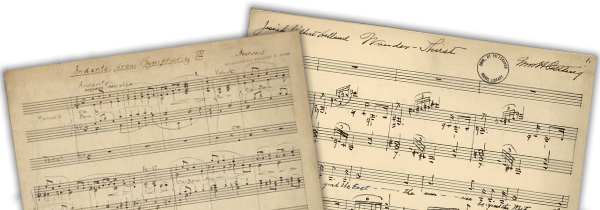
Stephen C. (Collins) Foster (1826–1864) was born in Lawrenceville, Pennsylvania, outside of Pittsburgh. He wrote songs in his youth to perform in amateur blackface minstrel shows and in parlors with his friends. After the immense success of “Oh! Susanna” and “Uncle Ned,” in 1849 Foster signed contracts with music publishers and embarked on a career as a songwriter. Among his most successful songs were the minstrel songs “Old Folks at Home,” “My Old Kentucky Home,” “Massa's in de Cold Ground,” and “Old Black Joe.” He also composed ballads such as “Gentle Annie” and “Jeanie with the Light Brown Hair,” serenades such as “Beautiful Dreamer,” and Civil War songs such as “That's What's the Matter.”
Although always dependent on family for financial assistance, he was successful in the early 1850s. His popularity declined, however, later in the decade. When he died in early 1864, he had only thirty-eight cents to his name. In the 1890s, he became a highly mythologized figure, held up by some Americans as the “father of American music” and a composer of songs that embodied American democracy.
The Stephen Foster Collection provides a record of Foster’s compositional process, nineteenth-century life in the United States, the music business, Pittsburgh history, and Foster’s legacy. Because Foster wrote many of his songs for white performers to perform in blackface in derogatory minstrel shows, this collection contains an abundance of racist text and images.